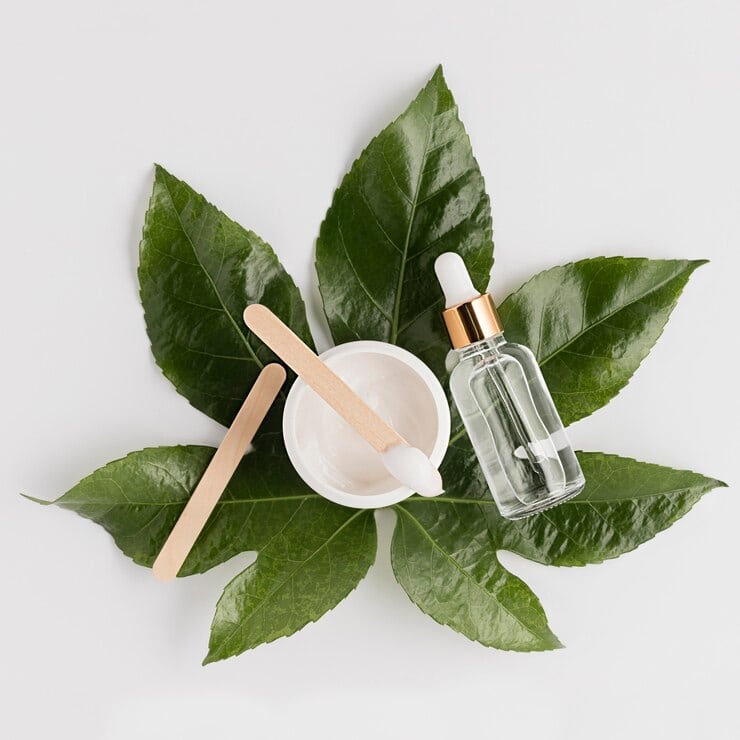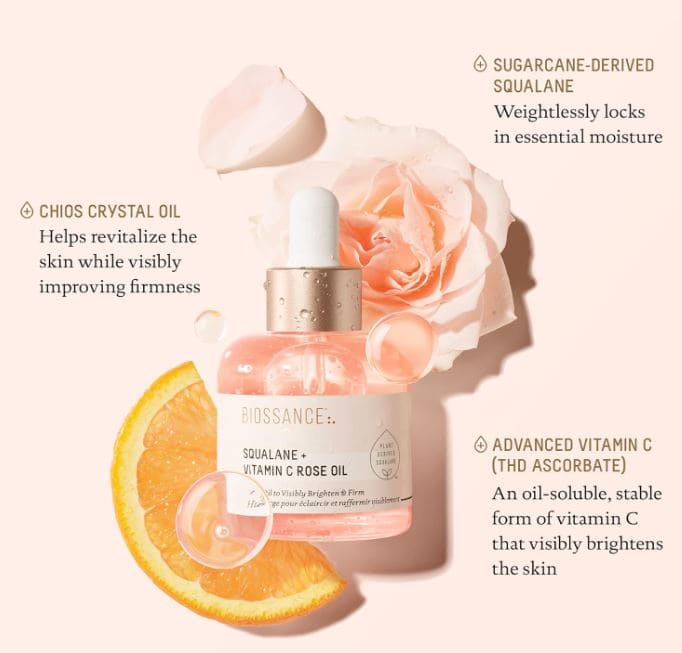
Glow Naturally: Top Tips for Natural Skincare
Did you know that the cosmetics industry generates over $93.5 billion in revenue every year?
With so many products available on the market, it’s easy to get overwhelmed by the options.
But when it comes to achieving a healthy and glowing complexion, sometimes the simplest and most natural solutions are the most effective.
In this article, we will explore top tips for natural skincare that will help you unlock radiant skin without relying on harsh chemicals or synthetic ingredients.
Are you ready to embrace natural beauty and restore your skin’s natural glow? Let’s dive in!
Stay Hydrated for Radiant Skin
Hydration is key to achieving radiant skin. Drinking enough water throughout the day is essential to keep your skin hydrated and glowing.
The Institute of Medicine recommends that women aim for 9 cups of water per day, while men should aim for 13 cups.
It’s important to note that this includes water from both beverages and food. Staying hydrated is the first step towards maintaining a healthy and glowing complexion.
Benefits of Hydration for Glowing Skin
Proper hydration has numerous benefits for your skin. Here are just a few:
- Improved skin elasticity
- Reduced appearance of fine lines and wrinkles
- Enhanced skin texture and complexion
- Increased skin’s ability to heal and regenerate
- Improved overall skin health
- Boosted natural radiance
Drinking enough water not only hydrates your skin but also helps flush out toxins and supports the overall health of your body.
It’s a simple yet powerful way to improve your skin’s appearance and maintain a youthful glow.
Tips for Drinking Enough Water
Here are some tips to help you meet your daily water intake:
- Keep a water bottle with you throughout the day for easy access to hydration.
- Set reminders on your phone or use a water tracking app to stay on top of your water intake.
- Add flavor to your water by infusing it with fruits, herbs, or vegetables for a refreshing twist.
- Drink water before, during, and after physical activity to replenish fluids lost through sweat.
- Eat hydrating foods such as watermelon, cucumber, and leafy greens, which can contribute to your overall hydration.
Remember, maintaining proper hydration is not only important for your skin but also for your overall health and well-being. So, drink up and let your skin glow!
Choose Natural Facial Oils for Moisturization
Incorporating natural facial oils into your skincare routine is a great way to moisturize your skin and achieve a healthy glow.
Natural facial oils such as coconut oil, argan oil, jojoba oil, rosehip oil, and even extra-virgin olive oil are packed with nourishing properties that can improve skin hydration.
These oils penetrate deep into the skin, providing intense moisturization and leaving your skin feeling soft, supple, and rejuvenated.
Unlike traditional moisturizers that may contain synthetic ingredients, natural facial oils are free from harsh chemicals and additives, making them ideal for those with sensitive skin.
| Oil | Benefits |
|---|---|
| Coconut oil | Provides deep hydration and has antimicrobial properties |
| Argan oil | Rich in antioxidants and essential fatty acids for nourished skin |
| Jojoba oil | Mimics the skin’s natural sebum and balances oil production |
| Rosehip oil | High in vitamins A and C, which promote youthful-looking skin |
| Extra-virgin olive oil | Moisturizes and soothes dry skin, leaving it radiant |
To incorporate natural facial oils into your skincare routine, start by cleansing your face thoroughly.
Then, apply a few drops of your chosen oil to your fingertips and gently massage it into your skin using upward circular motions.
Allow the oil to absorb for a few minutes before applying any additional products or makeup.
Remember, a little goes a long way with facial oils, so start with a small amount and adjust as needed.
You can use them as a standalone moisturizer or mix a few drops with your existing moisturizer for added hydration.
By incorporating natural facial oils into your skincare routine, you can give your skin the nourishment it needs to maintain a healthy glow for a radiant complexion.
Protect Your Skin from Sun Damage
Protecting your skin from both UVA and UVB radiation is crucial for maintaining a glowing complexion.
The sun’s harmful rays can lead to premature aging, sunburn, and even skin cancer.
It’s essential to use a sunscreen that provides effective UVA and UVB protection to shield your skin from these damaging effects.
When choosing a sunscreen, opt for a mineral-based formula rather than a chemical sunscreen.
Mineral sunscreens, also known as physical sunscreens, use natural ingredients like zinc oxide and titanium dioxide to create a physical barrier on your skin, reflecting and scattering the sun’s rays.
This makes them a safer option for your skin as they expose you to fewer potentially harmful chemicals.
Mineral-based sunscreens offer high protection against UVA and UVB rays and provide broad-spectrum coverage.
UVA rays can penetrate deep into the skin, causing long-term damage and premature aging, while UVB rays are responsible for sunburn.
By using a sunscreen that protects against both, you can keep your skin healthy and prevent sun damage.
Additionally, mineral sunscreens are gentler on the environment.
Chemical sunscreens can contain ingredients that are harmful to coral reefs and other marine life when they wash off in the water.
By choosing a mineral-based sunscreen, you can enjoy natural sun protection without contributing to environmental degradation.
To ensure optimal protection, remember to apply sunscreen generously and reapply regularly, especially if you are spending extended periods in the sun or engaging in activities that may wash off the sunscreen, such as swimming or sweating.
Don’t forget to cover all exposed areas of your body, including your face, neck, arms, and legs.
Embrace the power of natural sun protection with mineral-based sunscreens, and shield your skin from the sun’s harmful rays, all while promoting a radiant and healthy complexion.
Benefits of Mineral-Based Sunscreens:
- Provide effective UVA and UVB protection
- Broad-spectrum coverage
- Contain natural ingredients like zinc oxide and titanium dioxide
- Reflect and scatter the sun’s rays to prevent skin damage
- Gentler on the environment compared to chemical sunscreens
- Safe for sensitive skin
- Do not cause irritation or allergies
Tailor Your Skincare Routine to Your Skin’s Needs
Every individual has unique skincare needs, and it’s crucial to customize your routine accordingly.
A tailored skincare routine can address specific concerns and promote a balanced and glowing complexion. If you have an oily T-zone, here are some tips to help you maintain a healthy skincare routine:
- Use a mattifying clay mask on your T-zone: Applying a mattifying clay mask to your oily T-zone can help control excess oil and minimize the appearance of pores. This will leave your skin looking matte and refreshed.
- Treat the rest of your face with a moisturizing oatmeal mask: While targeting your T-zone, make sure to nourish the rest of your face with a moisturizing homemade oatmeal mask. Oatmeal can soothe and hydrate your skin, leaving it soft and supple.
- Balance your routine with gentle cleansers and lightweight moisturizers: Choose cleansers and moisturizers that are suitable for your skin type. Look for products specifically designed for oily or combination skin to maintain a healthy balance throughout your skincare routine.
By customizing your skincare routine to meet the specific needs of your oily T-zone, you can address the concerns of excess oil production and achieve a healthy and glowing complexion.
Remember, everyone’s skin is different, so it’s essential to pay attention to how your skin responds to different products and adjust your routine accordingly.
Consulting with a dermatologist or skincare expert can also help you create a personalized routine that caters to your skin’s unique requirements.
| Skincare Tips for an Oily T-zone | Benefits |
|---|---|
| Use a mattifying clay mask | Controls excess oil and minimizes the appearance of pores |
| Treat the rest of your face with a moisturizing oatmeal mask | Soothes and hydrates the skin, leaving it soft and supple |
| Balance your routine with gentle cleansers and lightweight moisturizers | Maintains a healthy balance and prevents excessive oil production |
Conclusion: Glow Naturally: Top Tips for Natural Skincare
Achieving a natural glow requires a holistic approach to skincare. By following these tips for natural skincare, you can nourish your skin from the inside out and unlock a radiant complexion.
First and foremost, staying hydrated is essential for maintaining glowing skin.
Drink enough water throughout the day to keep your skin hydrated and healthy. Remember, proper hydration is the foundation for a vibrant complexion.
Additionally, incorporating natural facial oils into your skincare routine can provide deep moisturization and leave your skin feeling soft and supple.
Opt for options like coconut oil, argan oil, jojoba oil, rosehip oil, or extra-virgin olive oil for nourishing and rejuvenating benefits.
Furthermore, protecting your skin from sun damage is crucial. Choose a mineral-based sunscreen for UVA and UVB protection, minimizing exposure to harmful ingredients.
Regularly reapply sunscreen, especially if you’re spending extended periods outdoors.
Lastly, tailor your skincare routine to address your skin’s specific needs. Consider your skin type, such as an oily T-zone, and customize your routine accordingly.
This approach ensures balanced care and promotes a healthy, glowing complexion.
Embrace natural beauty and incorporate these holistic skincare tips into your daily routine.
Your skin will thank you for the nourishment and care, resulting in a radiant and healthy glow.
FAQ
How much water should I drink for radiant skin?
The Institute of Medicine suggests that women should aim for 9 cups of water per day, while men should aim for 13 cups. Remember that this includes water from both beverages and food.
What are the benefits of using natural facial oils?
Natural facial oils such as coconut oil, argan oil, jojoba oil, rosehip oil, and extra-virgin olive oil provide deep moisturization and leave your skin feeling soft and supple.
They help improve skin hydration and nourishment, resulting in a healthy glow.
What type of sunscreen should I use to protect my skin?
It is recommended to choose a mineral-based sunscreen instead of a chemical sunscreen.
Mineral sunscreens offer high protection and expose your skin to fewer harmful ingredients.
They are also more environmentally friendly.
How can I customize my skincare routine based on my skin’s needs?
If you have an oily T-zone, consider using a mattifying clay mask on that area and a moisturizing homemade oatmeal mask on the rest of your face.
Customizing your skincare routine helps address specific concerns and promotes a balanced and glowing complexion.
Related: Unlock Youthful Skin: Power of Natural Anti-Wrinkle Oils







